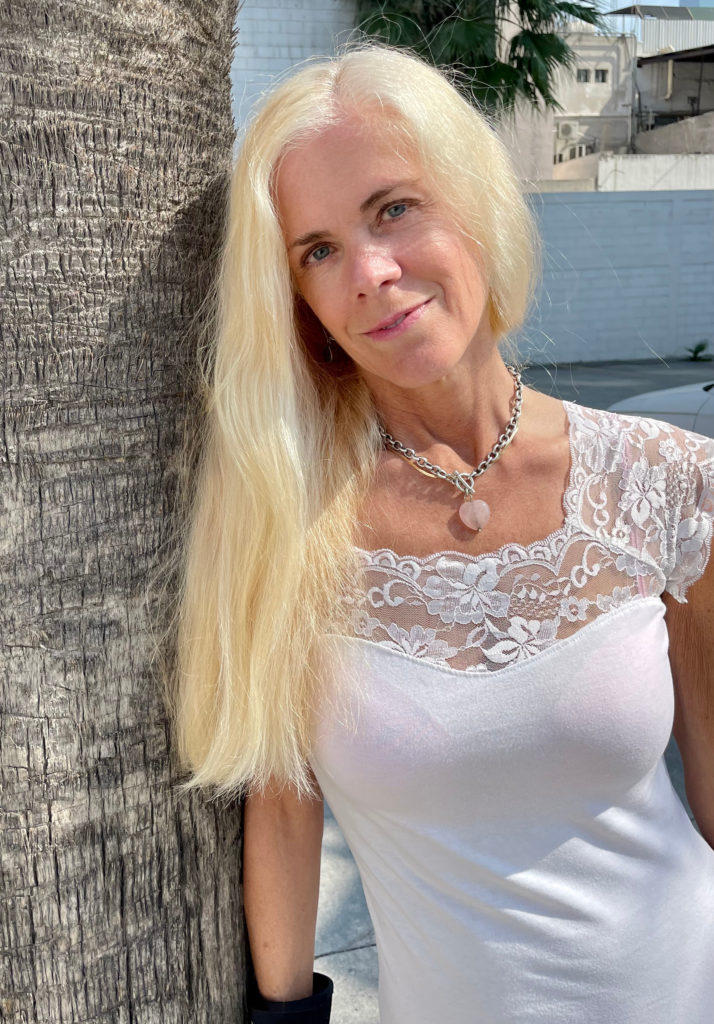Medical Assistance In Dying And MS

*If you need support, call the National Suicide Prevention Lifeline at 800-273-8255, or text ‘start’ to the Crisis Text Line at 741741
When MS Makes You Consider Medical Assistance In Dying (MAID)
When I was first diagnosed, I wondered if there would ever come a time when MS would make me not want to live. It’s generally discouraged to speak openly about our darkest and most desperate contemplations, but entertaining worst-case scenarios feels like a pretty natural–maybe even reasonable–thing to do when you find out you’re gonna be sick for the rest of your life.
MS is marketed as a manageable condition. We now have more than 20 disease modifying therapies that promise to make MS boring. And let the choir sing, because these drugs are game-changers for many. But not for all. We can’t ignore the reality that for some people, MS can be so severely disabling that life with MS becomes unbearable.
One of the biggest surprises of my life is how much more MS I can handle than I once thought I could. Despite my ongoing discovery that a difficult life doesn’t have to be a joyless one, when new symptoms appear I still find myself dipping my mostly-numb toe into the water of ‘what will my threshold with this disease be’.
MS is a bfd, and by the power invested in me by God and the internet, I grant you permission to freak out about it from time to time.
That said, I don’t want you to live there. The occasional existential meltdown is not the same as living with the profound feeling that you can’t go on. I want to acknowledge what those of us with MS are up against and to consider what we can do to protect ourselves from the worst of what MS portends. I also want to acknowledge that for some, death with dignity can be a rational choice.
Who is at risk?
Suicide risk in the MS population is twice that of the general public. There’s a difference between a quality of life that has been so diminished by severe progressive disease that life becomes intolerable and a suicidality that may be influenced by transient or modifiable factors. When 50% of people with MS will experience a major depression–a massive risk factor for suicide–I feel like it’s up to us–the people living with the disease—to tease apart the difference.
What happens when MS isn’t manageable?
When Canada introduced Medical Assistance In Dying (MAID, 2021) for serious incurable “disease, illness, or disability”, I felt relieved that MS was on the list of qualifying conditions. In my own end-of-life fantasies, a last-ditch trip to Switzerland seemed like the only option for a dignified self-determined death. While dying with jet lag seemed particularly cruel and unusual, death by drug-laced chocolate made the effort seem worthwhile.

While my mostly apathetic, half-assed contemplations of an imaginary future I won’t be able to handle feel largely theoretical, the existence of MAID is like a security blanket; a hall pass to a good death, reassurance that I have options if worse should come to worst.
But MAID got a lot more real for me when fellow Tripper and Internet friend Jenny Angus reached out, first to offer me a device that had stopped being helpful for her, and then to tell me she’d applied for access to Canada’s medical assistance in dying program.
Note: giving your shit away is a red flag that you might be thinking of checking out.

The Canadian government has granted Jenny the right to die. When I asked Jenny how it felt to have someone in authority agree that the suffering her MS is causing is unendurable, she expressed relief. In a body she can’t control, access to MAID has given Jenny the ultimate autonomy.
Globally speaking, medical assistance in dying is not widely available for most people with MS. When it is an option, it’s as a last resort and the gatekeepers of access have an obligation to ensure that everything has been done to manage symptoms and optimize quality of life so that no one’s life ends prematurely.
Making life better
Jenny is a self-described tough bitch, but her MS symptoms rule her day and have stripped her of her sense of purpose. A former athlete and artist, Jenny no longer has the hand and arm strength to paint. But has Canada, society, the world, done enough to support Jenny’s quality of life? When Jenny vented her frustration at the lack of accessible spaces, the staggering cost of MS, the stigma of disability, and the overwhelming shittiness of homecare, I asked what it would mean to her if the dismissive neurologist who mis-diagnosed her, leaving her untreated for a critical ten years, were to apologize for what his oversight cost her.

I can accept that science still needs time to figure out how to reverse nerve damage and cure MS; but in a world where suicide is considered the pinnacle of irrationality while disability is considered a fate worse than death, it’s not enough to say that all life is precious, please don’t die. We don’t do nearly enough to make the lives of the disabled more liveable. We have let the Jennys of the world down.
So how the eff do you survive when MS seems unsurvivable?
The leading risk factors for people with MS in pursuit of an early death include level of disability, depression, and social isolation. If you wanna live that Betty White life, there are some things you can do to invest in your longevity.
Seek early and highly effective treatment
Degree of disability is a predictor of suicidality in MS. The best way to mitigate and minimize disability is with disease modifying therapies (DMTs). The earlier the better. If you’re like me, and your MS pre-dates the most effective treatments, DMTs might not be able to undo existing damage, but there’s growing evidence they can stave off new damage.
Build your social capital
Loneliness shortens lives. Find your tribe.
Get depression treated
If you have MS, depression should be on your radar. Don’t suffer. Get help.
Manage your independence
Ask your doctor or MS clinic for a consult with an Occupational Therapist (OT), and figure out the hacks that will help you maintain independence. And then, for the love of Miss Vickies, learn to say ‘fuck off’ to the stigma around being helped. We all need help. Reject the misguided idea that independence is a virtue.
Get your shit together
I was shocked to learn that bowel dysfunction is a research-proven predictor of suicidality. Then I thought about how all-consuming my own bowel issues can be. I have definitely felt tempted to roll the dice on colon cancer screening just to avoid the nightmare of prepping for a colonoscopy with a neurogenic bowel. However, like depression, a neurogenic bowel is treatable. It can take a lot of work and more than one doctor to get this under control. Don’t give up.
Okay, I get it. My to-do list just got longer. Thanks. But, WTF happened to Jenny???
Being approved for medically assisted dying doesn’t mean you are obligated to follow-through. The Grim Reaper doesn’t show up at your door once you’ve been cleared. Unlike your cell-phone contract, MAID doesn’t own you. In fact, Jenny has 10 years to decide if or when she wants to use it.
Before Jenny could work out the ending to her story, there was a third-act plot twist. I’m happy to report that Jenny isn’t out of the game yet. With the love and support of her friends, she suddenly had an opportunity to have a hematopoietic stem cell transplantation (HSCT) in Mexico.

HSCT is highly effective, especially in early and active MS, and if you have MS you should know about it. HSCT is risky, has serious side-effects, can be expensive, and has limited availability; but when it works, it really fucking works. Do your homework and consult trustworthy resources.
After more than 20 years with MS and no new MRI activity since 2017, Jenny knows she’s not the ideal HSCT candidate, and calls this her Hail Mary. She’s done her research and understands that the procedure may not halt her smouldering MS, that chemotherapy may worsen neurological function, but Jenny feels like HSCT is her best shot at exorcising what she calls her MS poltergeist.
Jenny spent much of last year pursuing medical assistance in dying. Now she’s putting all her resources into a chance at a better life. On February 17th Jenny received her stem cell transplant and celebrated what she and other transplant recipients consider her “second birthday”. There was even a cake.
Jenny’s finding a new sense of purpose in speaking her truth and being a voice for others with MS. She’s thoroughly documenting her HSCT journey on a new blog, because she knows the intel can be hard to come by.
I want to thank Jenny for trusting me to share her story and for being so candid about her experience with MAID. Kathy Reagan Young was the first to break Jenny’s story on the FUMS podcast which I highly recommend. Kathy is a leader in this space and a champion for others with MS. Plus, her generous use of the F-word almost rivals my own. Almost.
You can follow Jenny’s ongoing journey here. And listen to her speak with Kathy on the FUMS podcast here.
Jenny, we are all rooting for you.
Look after yourselves, Trippers. MS is hard.

Follow Tripping On Air on Facebook and Instagram. I’m also on Twitter, but I kind of suck at Twitter.

 Back to
Back to
Your posts save me. Maybe it’s the f-word. I’m having a bad issue with bowels and appreciate the risk for suicide. I get by on the adage to give those thoughts a few days. Having a loving husband and community helps tremendously but I think people lie when they say the idea of “checking out” hasn’t crossed their mind. Thanks.
Stem cells are way too expensive for ms affected people. Not an option when we live on social security. I, for one, don’t allow myself to even have hope such a procedure. Not realistic. I do, however wish Jenny all the best wishes and slowing of this ms journey.
Had it done in 2016 in Pueblo. Please emphasize time is critical. RUN. DO IT NOW!! It stopped the progression and gave me a life back.
Thank you for posting this. You did a great job discussing the complexities of a taboo but real issue when one has MS. Rooting for Jenny.
It all sounds familiar..a body not doing what you want it to..is very tiring and I really believe you just cant fight the fight anymore..but not sure you can will your body to just stop..but honestly believe some elderly can and some can’t, especially if you have a pacemaker..I worked in an extended care unit and speaking of bowel care..it sucks..a suppository every third day..no thanks..I would lie about that one..but it wouldn’t work if you are bed ridden, but you can die from a bowel obstruction..all the shit to look forward too..keep on keepin on??sorry for being such a Debbie downer but it’s been a long winter but on the positive side..it’s a beautiful sunny day but still on the chilly side..I was out on a drive to town and to one shop with R..that was good and I can actually read without falling asleep which is awesome?❤️?❤️
Each of us has the right to end our suffering. Now, if the upright do-gooders would just get out of the way, it would be legal in all countries.
Maybe bowel care would incentivize them!
The ms society is useless. The neurologists don’t know much. If you don’t present with textbook results you are screwed. The last hope we had with symptoms was scraped because they said it didn’t cure MS. We knew that…it didn’t work with everyone but gave us hope. It helped me with one bad symptom in 2012. It just came back but I have no hope of repeating the process because the Canadian neurologists put it on the doesn’t work as a cure so American doctors stopped treating Canadian patients who paid with own money. It was a pissing contest between cardiologists and neurologists. Who lost…MS patients. They should be doing this in Canada.
Here in Maine we have the death with dignity which is similar to MAID. I have an advanced directive to not provide any form of Life support. I also have a DNR. I can live with MS, it’s the complications that are going to get me.
When I was younger, before being diagnosed with MS, I resolved to off myself if my tomorrow was going to be worse than today. I got diagnosed with MS, which my neurologist assured me was (i) progressive, (ii) irreversible, and (iii) incurable. I was offered my choice of DMT. Every DMT had side effects which would make my tomorrow more miserable than my today. I decided not to take any of them. Neurologists act like disturbances of the GI tract are trivial but to me they’re not, as I hate using public washrooms. What I did do was live the best life I could today, without planning for tomorrow. My bank account is overdrawn but I bought a ticket to Puccini’s La Boheme tomorrow. I don’t know if I’ve had a relapse but the results of each MRI shows new lesions. I can only conclude that my brain is repairing itself to compensate for the fresh lesions.
“…a difficult like doesn’t have to be a joyless one…”
I should get that tattoo.
Yes, it’s definitely something we all think about. As a person who lives in the US south, no state around me would ever get on board with MAID, but luckily we have other more progressive places to live if need be. I heard once that Oregon is the only state that allows “death tourism” but I haven’t actually researched it. Yet.
I relate to your astonishment at what you’ve been able to adjust to. I feel exactly the same way. A 2xd low dose of Effexor helps me stave off depression. I highly recommend it.
difficult life… ?
God bless… I try to pour my faith into Gods timing… having a brain with no body is a struggle! Truly are therapies helping that much versus side effects? I’m not convinced to be honest… maybe there are just good and bad days for me… it’s so difficult to pursue and chase down all these maybe this will help options!! Twenty plus years… we hold on to hope most days
I think about this at least once a day!
I also have a measuring stick that goes like ‘once that happens I’ll seek out dying with dignity’. I have been suprised that when that thing happens I have been able to cope. In Australia MS is not considered a disease that ‘qualifies’ for assisted dying but we have advocates in the space now including neurologists who are confident this will change. I agree that as long as you can still joy life is worth living . Thank you for bringing it up – I’m pretty sure we all think about it.
Love, love, love stories with happy ending. Us, who live with the daily challenges of MS often loose sight of the beauty of a happy ending even when there is one. Thanks for sharing this story because the fact that the happy ending involved someone living with MS made all the difference to me.?